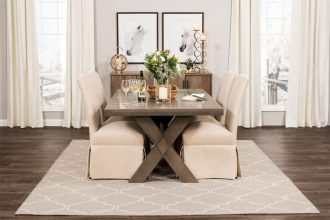Defining Skilled Nursing Care
Skilled nursing care is a level of medical care that requires the expertise of licensed health professionals, such as registered nurses or physical therapists. It’s designed for individuals who need ongoing medical attention, rehabilitation, or specialized care that cannot be provided at home or in less intensive settings. This type of care focuses on medical needs and recovery. It’s more than just basic assistance; it involves complex medical procedures and constant monitoring.
- Defining Skilled Nursing Care
- Services Provided by Skilled Nursing Facilities
- Skilled Nursing vs. Assisted Living
- Recognizing Declining Health and Mobility
- Addressing Complex Medical Needs
- Evaluating Cognitive and Mental Health Changes
- Assessing the Need for 24-Hour Medical Supervision
- Considering Caregiver Well-being
- Making the Right Choice for Your Loved One
If you’re wondering what is skilled nursing care, Casa de las Campañas explains it as professional, around-the-clock medical support tailored to individuals recovering from illness, injury, or surgery.
Services Provided by Skilled Nursing Facilities
Skilled nursing facilities offer a wide range of services. These include 24-hour medical supervision, wound care, physical therapy, occupational therapy, speech therapy, intravenous (IV) therapy, and medication management. They also provide assistance with activities of daily living (ADLs) like bathing, dressing, and eating. The goal is to provide a safe environment and comprehensive care for residents.
- Wound care and management
- Physical, occupational, and speech therapy
- Medication administration and monitoring
- Post-surgical recovery support
- Management of chronic conditions
Skilled Nursing vs. Assisted Living
It’s important to distinguish skilled nursing care from assisted living. Assisted living facilities offer help with daily activities and provide a supportive environment, but they do not typically provide the intensive medical care that skilled nursing facilities do. Skilled nursing care is for individuals with significant medical needs requiring constant supervision by licensed medical professionals. Assisted living is more for those who need help with daily tasks but are otherwise relatively healthy. If your loved one needs medical attention beyond basic assistance, skilled nursing is likely the more appropriate choice.
Recognizing Declining Health and Mobility

Sometimes, it’s tough to tell when a loved one’s health is slipping. You might notice they’re not as steady on their feet as they used to be. This can lead to falls, and frankly, falls are a big deal for older adults. They can cause serious injuries, like broken bones, and often mean a trip to the emergency room. It’s a clear sign that their current living situation might not be safe enough.
Beyond just falling, you might see them struggling with everyday tasks. Things like bathing, getting dressed, or even eating can become a real challenge. If your loved one needs a lot of help with these activities of daily living, it’s a strong indicator that they could benefit from more support. This difficulty with daily activities is a common reason families start looking into skilled nursing care.
Mobility issues and transfers are also important to watch for. This could mean they have trouble getting out of a chair, moving around their home, or even getting in and out of bed. If they’re using a walker or wheelchair and need assistance with moving from place to place, it’s a sign that their physical needs are increasing. Recognizing these changes in mobility is key to making sure they stay safe and comfortable.
Addressing Complex Medical Needs
When a loved one’s health needs become more complicated, it’s a clear sign that professional support might be necessary. This often happens when managing chronic conditions or dealing with the aftermath of serious medical events.
Chronic Health Conditions Requiring Constant Monitoring
Many seniors live with ongoing health issues that need regular attention. Conditions like diabetes, heart disease, or respiratory problems can worsen without consistent medical oversight. If your loved one’s chronic condition requires frequent check-ups, adjustments to treatment plans, or specialized care that’s hard to provide at home, it’s time to look at options like skilled nursing. These facilities are equipped to handle the day-to-day management of complex illnesses, offering peace of mind.
Need for Specialized Medical Equipment or Procedures
Sometimes, a person’s medical situation calls for equipment or procedures that aren’t practical for home use. This could include things like wound care, IV therapy, oxygen support, or even temporary needs like post-surgery recovery. Skilled nursing facilities have the trained staff and the necessary equipment to administer these treatments safely and effectively. The ability to manage these specialized needs is a key difference.
Managing Multiple Medications
As people age, they often take several different medications, sometimes with complex schedules. Keeping track of dosages, timing, and potential interactions can be overwhelming. If your loved one is struggling to manage their medications, leading to missed doses or errors, skilled nursing care can provide reliable medication management. This service helps prevent complications and ensures they receive the correct treatment at the right times. It’s a common reason families consider skilled nursing.
Evaluating Cognitive and Mental Health Changes
When a loved one’s cognitive or mental health starts to change, it can be a difficult time for everyone involved. These shifts can impact their ability to manage daily life and can also create safety concerns. Recognizing these changes is the first step in figuring out if more specialized care is needed.
Cognitive Impairment and Memory Loss
It’s not uncommon for memory to change as people age, but significant cognitive impairment or memory loss can be a clear signal that a loved one might need more support. This can manifest as forgetting important appointments, misplacing items frequently, or having trouble following conversations. When these issues start to affect their ability to manage their household or personal care, it’s time to seriously consider skilled nursing care. This type of care provides a structured and safe environment, with staff trained to assist individuals experiencing memory loss and cognitive decline.
Changes in Behavior or Personality
Sudden or significant changes in behavior or personality can also be indicators of underlying issues. This might include increased irritability, confusion, agitation, or withdrawal from social activities. If these changes are persistent and disruptive to their well-being or the well-being of those around them, it suggests a need for professional assessment and care. Skilled nursing facilities are equipped to manage these behavioral changes with patience and specialized approaches.
Safety Concerns Due to Cognitive Decline
Cognitive decline often brings safety risks. This could mean forgetting to turn off the stove, leaving doors unlocked, or wandering off. The inability to recognize or manage these dangers is a major red flag. If a loved one is no longer safe living independently due to cognitive issues, skilled nursing care offers a secure setting with constant supervision. This round-the-clock monitoring helps prevent accidents and ensures their safety, providing peace of mind for the family.
Assessing the Need for 24-Hour Medical Supervision
When a loved one’s health takes a turn, especially if it involves unpredictable issues or a need for constant medical attention, it’s time to think about 24-hour medical supervision. This level of care goes beyond what most families can provide at home, even with the best intentions. It’s about having trained professionals available around the clock to manage complex health needs and ensure safety.
Frequent Hospitalizations or Emergency Room Visits
If your loved one is frequently ending up in the hospital or the emergency room, it’s a strong signal that their current care plan isn’t enough. These repeated visits often mean their underlying health issues are not being managed effectively on a day-to-day basis. A facility offering 24-hour medical supervision can provide the consistent monitoring and immediate intervention needed to potentially reduce these crises.
Need for Continuous Medical Care
Some health conditions require more than just occasional check-ins. Think about situations like managing complex wounds, needing regular IV treatments, or dealing with conditions that fluctuate significantly throughout the day. When a person needs continuous medical care, it means having skilled nurses and medical staff present at all times. This constant presence is what defines the need for 24-hour medical supervision.
Unpredictable Health Issues
Health can be unpredictable, especially for those with chronic illnesses or conditions that can change rapidly. If your loved one experiences sudden changes in their condition, requires specialized medical equipment that needs constant oversight, or has a history of health emergencies that arise without warning, then 24-hour medical supervision becomes a necessity. It offers peace of mind knowing that help is always on hand, ready to respond to any situation.
Considering Caregiver Well-being

Signs of Caregiver Burnout
Being a caregiver is a demanding role, and it’s easy to feel overwhelmed. If you’re noticing persistent exhaustion, irritability, or a loss of interest in activities you once enjoyed, it might be a sign of caregiver burnout. This can manifest as constant worry about your loved one’s well-being, coupled with feelings of resentment or guilt. It’s important to recognize these signals, as they indicate that the current caregiving situation may not be sustainable for your own health.
You can’t pour from an empty cup. When your own energy reserves are depleted, providing consistent, high-quality care becomes incredibly difficult. This can lead to mistakes or a decline in the attention given to your loved one’s needs. Prioritizing your own health isn’t selfish; it’s a necessary step to continue being a supportive presence.
Balancing Caregiving Responsibilities
Juggling caregiving duties with other life responsibilities, like work, family, and personal needs, can feel like an impossible task. There’s a constant pressure to be everywhere at once, leading to a feeling of never doing enough. This imbalance can strain relationships and impact your overall quality of life. It’s a delicate act, trying to meet your loved one’s needs while also maintaining your own.
It’s okay to admit that you can’t do it all alone. Seeking help or considering a different care arrangement isn’t a failure; it’s a practical solution to a challenging situation. The goal is to find a balance that supports both your loved one and yourself.
Ensuring Safety and Quality of Life
When your loved one’s needs become more complex, ensuring their safety and maintaining a good quality of life can become a significant concern. This might involve worries about falls, medication management, or simply ensuring they have social interaction and proper nutrition. If you find yourself constantly anxious about these aspects, it’s a strong indicator that professional support might be needed.
Skilled nursing facilities are equipped to handle these concerns. They provide a safe environment with trained staff available around the clock. This allows your loved one to receive the consistent care they require, while also freeing you from the constant burden of worry. It’s about finding a place where both of you can thrive.
Making the Right Choice for Your Loved One
Deciding when it’s time for skilled nursing care isn’t easy. It often involves looking at a lot of different things, like how often your loved one needs the hospital, if they’re having trouble with everyday tasks like bathing or eating, or if their memory is getting worse. Sometimes, it’s about noticing a general decline in their health, or maybe they’re falling more often. It’s a big step, and it’s okay to feel unsure. The goal is always to make sure your loved one is safe and gets the support they need, which might mean a nursing home is the best option for their well-being and for your peace of mind too.













